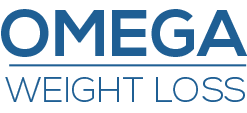Trash the Fizz

Dude…how did we get here?
May 22, 2020
Why is it so Hard to Lose Weight? Is it My Fault?
November 27, 2021Trash the Fizz
A 12 oz can of Coca Cola contains 39 grams of sugar which translate to almost 7 to 8 teaspoons of pure sugar. That sugar is fattening, has been proven beyond all doubts now, and cutting down on sugar intake is one of the first steps towards weight loss. Sugar stimulates both insulins as well as insulin resistance. So, although there is no direct relationship between consuming sugars and developing diabetes, over a period of years it leads to weight gain and as a result of that in type 2 diabetes.
We all agree that to prevent weight gain, we must take away all added sugars from our diet. However, many people make the folly of replacing sugar with artificial sweeteners. Many medical associations across the world (including the American Heart Association- AHA and American Diabetes Association- ADA) have cautiously approved the use of sugar-free supplements as a replacement for sugar.
Let’s dispel some myths around the so-called diet drinks.
Following is the list of FDA approved artificial sweeteners. As per FDA these fall under the category of – GRAS, which means “Generally Recognized as Safe.”
Artificial sweeteners defined
Saccharin– is a zero-calorie sweetener and is 200 to 700 times sweeter than sucrose (table sugar).
Acesulfame– is a calorie-free sugar-free substitute that remains stable after heating and hence is regularly used for cooked and baked foods.
Aspartame– is very commonly used as an ingredient of diet soda. It is 200 times sweeter than sucrose. It does not remain stable after heating and hence it is not used for baked and cooked food products. It is not safe for patients suffering from a rare genetic disorder called phenyl-ketonuria and there have been some concerns about its carcinogenic potential.
Neotame– is a zero-calorie sweetener which is 7,000 to 13,000 times sweeter than sucrose (table sugar).
Sucralose– commonly available under the brand name “Splenda” it is made from sucrose. It contains very few calories but is 600 times sweeter than sucrose (table sugar). There have been health concerns around the use of sucralose and in 2016 a study on male mice revealed susceptibility to developing malignant tumors. Researchers have noted that more studies are needed to establish its safety.
Stevia-is a natural sweetener that is derived from stevia rebaudiana. It is 300 times sweeter than sucrose (table sugar). Some people may experience bloating, nausea, and upset stomach after consumption of stevia.
The intake of artificial sweeteners has steadily gone up over the years. Today Diet Coke is the second most popular drink after Coca Cola in the United States. So, if there are no calories in them, why do we need to worry? We need to worry due to the following reasons:
Artificial sweeteners lead to incomplete activation of reward centers in the brain which may in turn lead to increased cravings and finally more consumption of calories and more weight gain. Artificial sweeteners may not contain sugar or calories, yet they do not decrease the risk of obesity, metabolic syndrome, stroke, or heart disease. This is because they still have the potential to increase insulin levels. Ultimately, high insulin levels and insulin resistance is what drives weight gain and diabetes.
In 2007, the Framingham heart study showed a 50% higher incidence in diet soda users. Women’s health initiative observational study showed 30% increased risk of cardiovascular events.
Artificial sweeteners can also be addictive. We must take into account the side effects of particular artificial sweeteners too.
In conclusion, in our quest for weight loss, replacing sugar with artificial sweeteners may not be such a great idea. Weight loss is not just about cutting down on caloric intake. It is also about the kind of calories that we consume. Merely replacing sugar, with artificial sweeteners may lead to a false sense of security.
Obesity is an extremely complex disease and the answers are equally complex. Access to the right information and proper guidance is an absolute need of the hour. So, stay away from that diet soda! It may not be the best choice for you!




